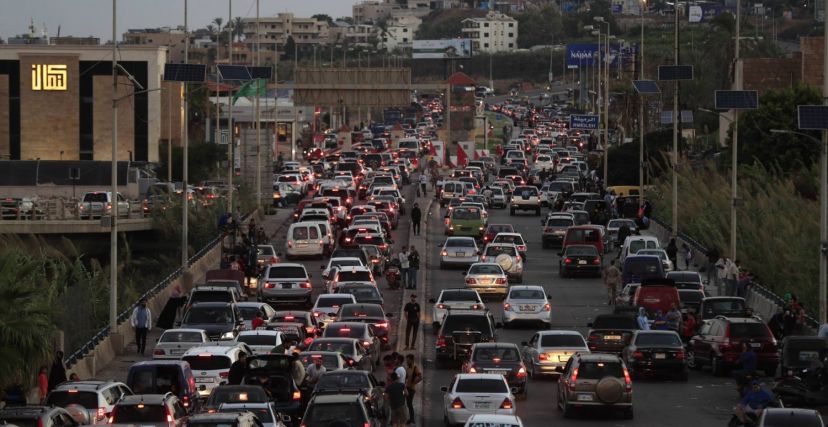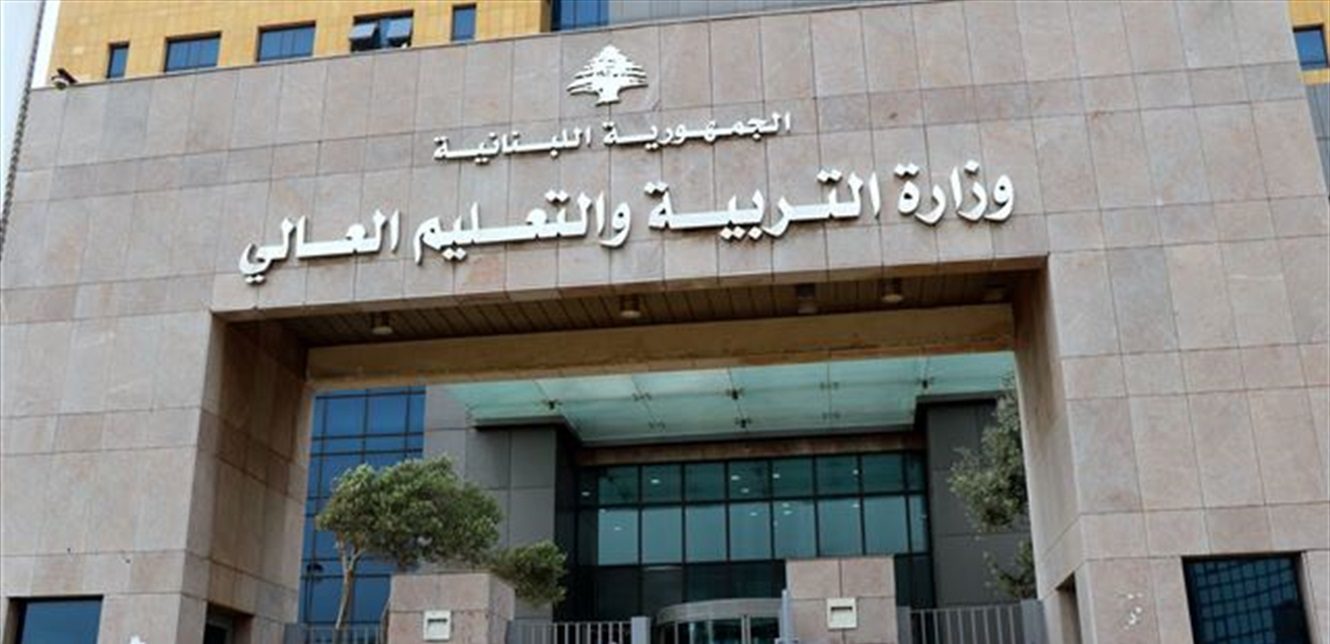النزوح “يُحرّك” اقتصاد المناطق “الآمنة”
مع تصاعد وتيرة الحرب، اضطر العديد من المواطنين إلى مغادرة منازلهم قسراً ومن دون أنْ يتمكّنوا من أخذ حاجاتهم الأساسيّة، ما دفعهم للجوء إلى مناطق أكثر أماناً. هذا التحوّل الكبير في أماكن الإقامة أدّى إلى تنشيط الحركة الاقتصاديّة في المناطق التي نزحوا إليها، حيث زادت الحاجة إلى تلبية مُتطلّباتهم الضروريّة.
مع حلول فصل الشتاء، تضاعفت حاجة النازحين إلى شراء الملابس والمُستلزمات الضروريّة لمواجهة البرد القارس، إلى جانب ارتفاع الطلب على المواد الغذائيّة وسلع الحياة اليوميّة. وهكذا، بات النزوح عاملاً مؤثّراً في تحريك الاقتصاد المحلي، محوّلاً التحدّيات إلى فرص للعديد من القطاعات التجاريّة والخدماتيّة. وقد شَهِدت الحركة الاستهلاكيّة للمواد الغذائيّة بشكل عام، نوعاً من التوازن في العرض والطلب، إذْ لم يتراجع الطلب على البضائع إنما تغيّرت جغرافيا الاستهلاك، وباتت تتركّز في المناطق المُحيّدة حتى الآن عن ويْلات الحرب المُباشرة.
“واقع مُتّزن”
رئيس نقابة مستوردي المواد الغذائيّة هاني بحصلي يتحدّث عن وضع العرض والطلب على المواد الغذائية، كاشفاً لـ”نداء الوطن”، أنّ “الطلب أصبح شبه معدوم في المناطق التي تتعرَّض للقصف، لكن في المُقابل ارتفع في تلك البعيدة عن دائرة الخطر. هذا الواقع حقّق اتزاناً، وبقيَ العرض على حاله. كذلك، لم يرتفع الطلب كثيراً إلى درجة لم يعد فيها العرض كافياً، وهنا أيضاً تنطبق النظريّة نفسها بحيث هناك فئة ارتفع الطلب لديْها مقابل انخفاض لدى أخرى، بما يجعل المجموع على صعيد لبنان في حالة استقرار كوْن العرض والطلب لم يتأثّرا بشكل ملحوظ يدعو للخوف”.
المواد الغذائيّة متوفّرة
يُطمئن بحصلي إلى أنّه “حتى اللحظة لا يزال العرض يفوق الطلب، وحاليّاً ما من مشكلة في التموين ولا في توافر المواد الغذائية التي من المُستبعد أن تنقطع طالما بقي العمل في مرفأ بيروت مستمرّاً وطالما البلد لا يُواجه حصاراً بحريّاً”.
وفي ظلّ لجوء بعض اللبنانيين إلى التموين وتخزين البضائع في منازلهم خوفاً من انقطاعها، يُعلق بحصلي لافتاً إلى أنّ “الاستهلاك اليومي من المواد الغذائية لا يقتصر على تلك التي يُمكن تخزينها مثل المعلبات والحبوب وغيرها. أمّا المنتجات التي تستهلك يومياً مثل الخبز، الألبان والأجبان، الخضار والفاكهة فلا يمكن تخزينها”، داعياً المواطنين إلى “عدم الخوف والتموّن أكثر من الحاجة، خصوصاً وأنّ بعض المنتجات ستُتلف ما لم تستهلك ضمن فترة زمنيّة مُعيّنه مثل الأرز والمعكرونة. كذلك، إن التمون فوق الحاجة يتسبّب في حرمان فئات كثيرة من المواطنين من سدّ حاجاتهم الغذائية، خصوصاً وأنّ تطمينات التجّار عن وجود كميّات كافية من البضائع مبنيّة على إحصاءات الاستهلاك الطبيعي وليس المُفرط من قبل البعض”.
أمّا بالنسبة إلى رفع أسعار المواد الغذائيّة، فلا يرى بحصلي “مُوجباً لرفعها أكثر من الغلاء الطبيعي الناتج عن ارتفاع تكاليف الشحن والتخليص واللوجستيات والتي هي ضمن إطار محدود جدّاً. في طبيعة الحال العرض لا يزال يفوق الطلب وما من موجب لتغيير الأسعار التي عادةً ما ترتفع عندما يتراجع العرض إذا اتّخذنا أساسيّات الاقتصاد كمرجع، سيّما في زمن الحرب”.
وفي هذا الإطار يُوضح بحصلي، أنّه “حتى الساعة يُسلّم المستوردون البضائع بالأسعار نفسها من دون رفعها، ومن المُمكن أن يكون بعض التجار رفع أسعاره في مناطق ما، لكن لا أرى عاملاً مُسبّباً لذلك”.
العيْن على المطار والمرفأ
وفي الختام، يعود ويُذكّر بحصلي أنّه “طالما مرفأ ومطار بيروت مستمرّان بالعمل، لن يكون لدينا أيّ مشكلة في التموين”، لافتاً إلى أنّه “حتى الساعة ما زال هذا هو الواقع”، ولكنّه يتطرّق إلى توسّع العدوان الإسرائيلي إلى خارج المناطق التي كان يقصفها في السابق وامتداد دائرة الإعتداءات إلى خارج ما يُسمّى بـ “المناطق التقليديّة أيّ الضاحية وغيرها”، كما حصل في منطقتيْ رأس النبع ومار إلياس”، مؤكدّاً هنا أنّه “لا يُمكن توقّع ما يُخفيه العدوّ في هذا الإطار”، لذا يُعبّر عن خشيْته “من إمكانيّة توسع أفكاره والاتجّاه نحو الحصار”، مُتمنياً “ألا يحصل هذا الأمر”.
طرابلس وجبل لبنان
ومن المناطق الأكثر تأثرّاً بحركة النزوح هي مدينة طرابلس، والتي استقبلت أعداداً كبيرة من النازحين الجنوبيين وكذلك من البقاع، بات سوق المدينة الشعبي، مقصداً للنازحين، يأتون إليه من مناطق قريبة له وبعيدة أيضاً من أجل شراء ما يحتاجونه من مواد غذائيّة وملابس وحاجيات أساسيّة أخرى، وذلك بسبب أسعاره المقبولة والمُنخفضة إلى حدّ ما.
وعن الحركة داخل السوق، يُوضح أحد أصحاب المحال التجاريّة لـ “نداء الوطن”، أنّ “المبيعات تضاعفت لديه منذ أنْ وصل النازحون إلى المنطقة مع بداية توسّع الحرب، سيّما أنني أبيع حاجيات أساسيّة تحتاجها كل عائلة في أيّ منزل، مثل أدوات التنظيف وأدوات المطبخ وحاجيات أخرى كثيرة”.
وفي الإطار، يؤكّد أنّ “القطاع الغذائي يُعتبر من أكثر القطاعات التي تستفيد من حركة النزوح، حيث يتطلب وجود النازحين توفير كميّات كبيرة من المواد الغذائيّة، وهذا ما أدّى إلى ازدهار تجارة المواد الغذائيّة، بما في ذلك الفواكه والخضروات والحبوب، كما تمّ تأسيس نقاط بيع جديدة لتلبيَة احتياجات الأسر النازحة”.
أمّا في المناطق الجبليّة، فقد نشطت حركة البيْع والشراء أيضاً، ولو بنسبٍ مختلفة بين منطقة وأخرى، وفي قطاعات مُحدّدة، حيثُ تؤكّد صاحبة أحد المحال التجاريّة، أنّها لمست “إقبالاً ملحوظاً على شراء الألبسة”، مُشيرةً إلى أنّ “شراء الملابس ليس خياراً بالنسبة للنازحين، بل هم مضطرّون بسبب تبدّل أحوال الطقس، وتحوّله إلى بارد، ولأنهم أخرجوا معهم عند النزوح حاجيات لا تكفيهم في الأيام المُقبلة”.
المصدر: رماح هاشم – نداء الوطن
The Impact of Displacement on the Economy of “Safe” Areas in Lebanon
As the war escalates, many citizens have been forced to leave their homes, unable to take their basic necessities with them. This forced relocation has led them to seek refuge in safer areas, which has, in turn, stimulated the economy in these regions. The increased demand for essential goods has sparked activity in the local markets of these “safe” zones.
With the arrival of winter, the displaced people’s need for clothing and other winter essentials has doubled. Additionally, the demand for food and daily necessities has risen significantly. The displacement has thus become a factor influencing local economic movement, turning challenges into opportunities for various commercial and service sectors. The consumer demand for food has reached a form of balance in terms of supply and demand. While the demand for goods has not decreased overall, it has shifted geographically, with consumption now concentrated in areas less affected by the direct consequences of the war.
A “Balanced Reality”
Hani Bahsali, the head of the Food Importers Syndicate, spoke about the supply and demand situation for food, stating to “Nidaa al-Watan” that “demand is almost nonexistent in the areas under bombing, but in contrast, demand has risen in the areas distant from the danger zone. This situation has led to a balance, with supply remaining stable. Demand has not increased to the point of depleting the available supply. There is a shift where certain areas are seeing more demand while others see less, but overall, Lebanon remains in a stable condition since supply and demand have not been significantly affected.”
Food Availability
Bahsali reassured that “up until now, the supply exceeds the demand, and there is no problem with food provision as long as operations at the Port of Beirut continue and the country is not facing a maritime blockade.”
In light of some Lebanese citizens storing goods at home in fear of shortages, Bahsali commented, saying, “Daily consumption of food products is not limited to those that can be stored, such as canned goods and grains. Products like bread, dairy, vegetables, and fruits cannot be stored. I urge citizens not to over-purchase, especially since some products will spoil if not consumed within a certain period, such as rice and pasta. Excessive stockpiling harms others by depriving them of the essential goods they need.”
As for food price hikes, Bahsali believes, “there is no reason to raise prices beyond the natural increase due to higher shipping, clearing, and logistical costs, which are minimal. Generally, supply still exceeds demand, and there is no need for price changes, as prices usually rise when supply drops according to basic economic principles, especially in wartime.”
Eyes on Beirut Airport and Port
Finally, Bahsali reminded that “as long as the Beirut Port and Airport continue to operate, there will be no issue with food supply,” adding that “this is the current reality.” However, he also mentioned the potential for Israeli attacks to expand beyond areas previously targeted, which could affect regions such as Ras al-Nabaa and Mar Elias. He expressed concern about the possibility of a blockade and hoped such a situation would not arise.
Tripoli and Mount Lebanon
Among the areas most affected by displacement is Tripoli, which has received a large number of displaced people from the south and the Bekaa region. The city’s popular market has become a hub for displaced individuals, who come from both nearby and far areas to buy food, clothes, and other basic necessities due to the relatively lower prices.
A market vendor in Tripoli shared with “Nidaa al-Watan” that, “sales have doubled since the displaced people arrived in the region with the onset of the war, especially since I sell essential household items such as cleaning supplies and kitchenware.”
The food sector is one of the most benefiting sectors from the displacement, as the presence of displaced people requires large quantities of food, which has led to a boom in the food trade, including fruits, vegetables, and grains. New sales points have also been established to meet the needs of displaced families.
In the mountainous areas, the retail market has also seen activity, albeit to varying degrees depending on the area and sector. One shop owner noted a noticeable increase in demand for clothing, emphasizing that “purchasing clothes is not a choice for the displaced; it is a necessity due to the change in weather, as they left with insufficient belongings for the coming days.”
Translated by economyscopes team
 سكوبات عالمية إقتصادية – EconomyScopes إجعل موقعنا خيارك ومصدرك الأنسب للأخبار الإقتصادية المحلية والعربية والعالمية على أنواعها بالإضافة الى نشر مجموعة لا بأس بها من فرص العمل في لبنان والشرق الأوسط والعالم
سكوبات عالمية إقتصادية – EconomyScopes إجعل موقعنا خيارك ومصدرك الأنسب للأخبار الإقتصادية المحلية والعربية والعالمية على أنواعها بالإضافة الى نشر مجموعة لا بأس بها من فرص العمل في لبنان والشرق الأوسط والعالم




